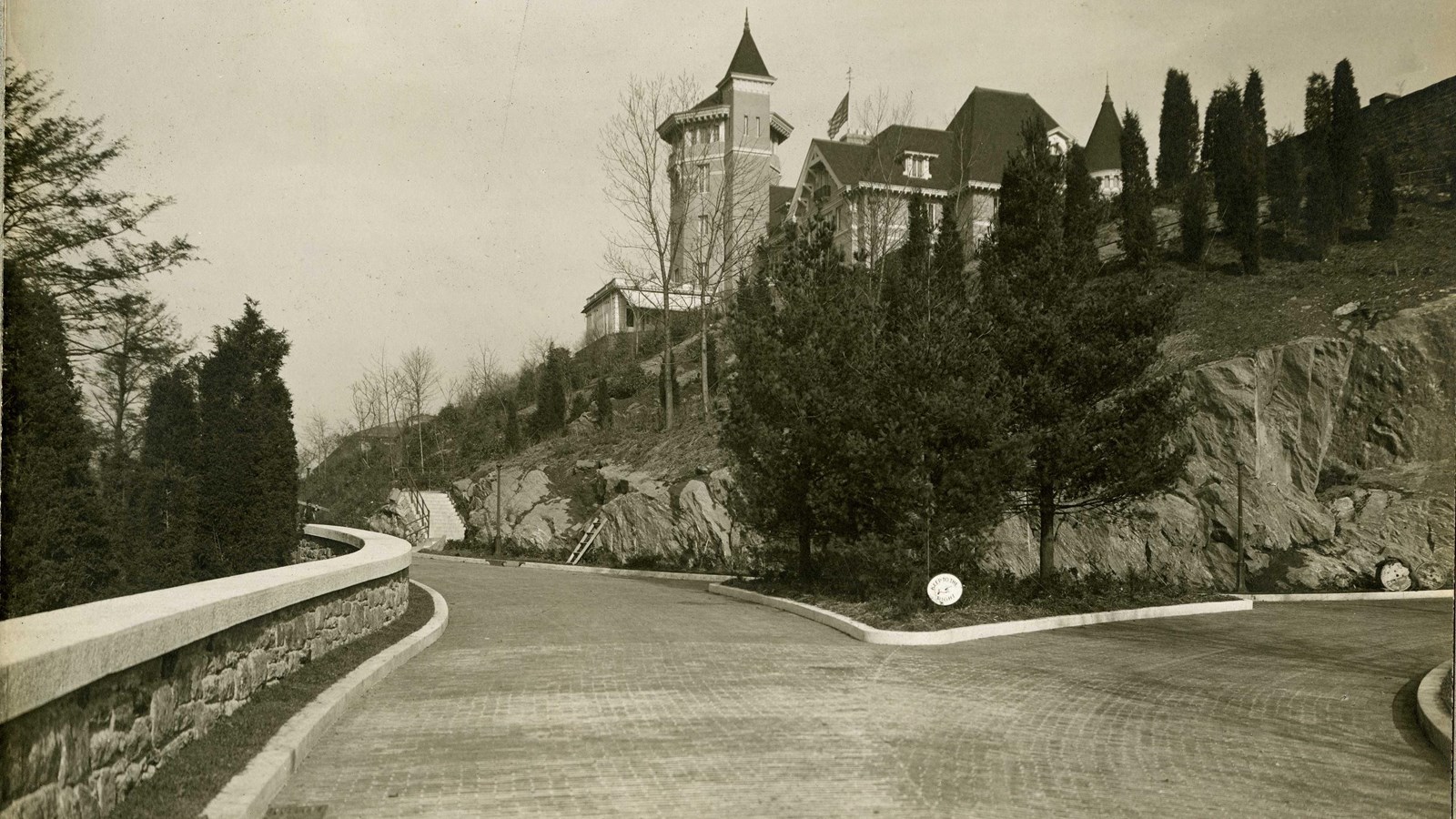Last updated: June 5, 2024
Place
Fort Tryon Park

Olmsted Archives
Quick Facts
Before being known as Fort Tryon, the area known as Mount Washington served as a battle site along the Hudson River during the Revolutionary War. British troops stationed there had named the site after William Tryon, the last British governor of colonial New York City. After the Americans won the war, they re-appropriated the name and referred to the area as Fort Tryon.
In 1917 John D. Rockefeller had purchased much of the land Fort Tryon sat on, with the vision to develop it into a park. Ten years later Rockefeller Jr. contacted Olmsted Brothers to develop that park, with Frederick Law Olmsted Jr. taking a particular interest in the project.
Jr. spent four years transforming Fort Tryon’s rocky soil and topography into a manicured landscape. He designed Fort Tryon Park with promenades, terraced, wooded slopes and eight miles of paths for pedestrians.
Rockefeller Jr. had his own visions for the park, believing it should provide striking views of the rock ridges in the distance. Olmsted Jr. agreed, for his design was careful to preserve open areas and included an abundance of colorful plants to compliment the expansive views of the Hudson River.
Over the years, restoration on Fort Tryon Park has constantly referred to the original Olmsted Brother’s design. Today, photos from the Olmsted Archives are used for restoration of the Alpine Garden at Fort Tryon Park.
Source: "Fort Tryon Park," The Cultural Landscape Foundation
For more information and primary resources, please visit:
Olmsted Research Guide Online
Olmsted Archives on Flickr
Olmsted Online
In 1917 John D. Rockefeller had purchased much of the land Fort Tryon sat on, with the vision to develop it into a park. Ten years later Rockefeller Jr. contacted Olmsted Brothers to develop that park, with Frederick Law Olmsted Jr. taking a particular interest in the project.
Jr. spent four years transforming Fort Tryon’s rocky soil and topography into a manicured landscape. He designed Fort Tryon Park with promenades, terraced, wooded slopes and eight miles of paths for pedestrians.
Rockefeller Jr. had his own visions for the park, believing it should provide striking views of the rock ridges in the distance. Olmsted Jr. agreed, for his design was careful to preserve open areas and included an abundance of colorful plants to compliment the expansive views of the Hudson River.
Over the years, restoration on Fort Tryon Park has constantly referred to the original Olmsted Brother’s design. Today, photos from the Olmsted Archives are used for restoration of the Alpine Garden at Fort Tryon Park.
Source: "Fort Tryon Park," The Cultural Landscape Foundation
For more information and primary resources, please visit:
Olmsted Research Guide Online
Olmsted Archives on Flickr
Olmsted Online
